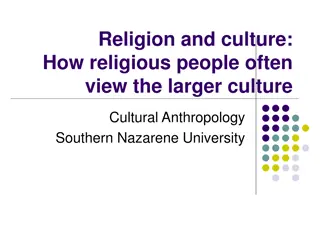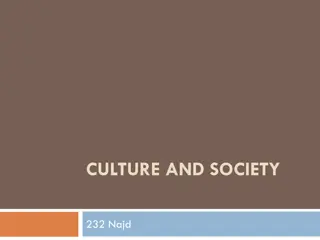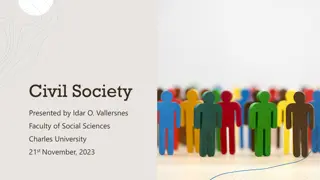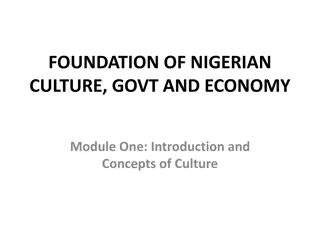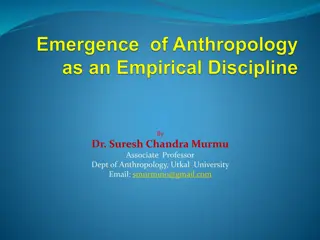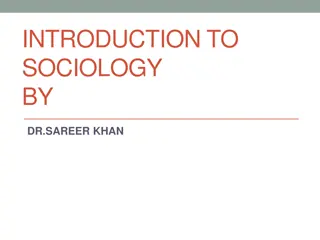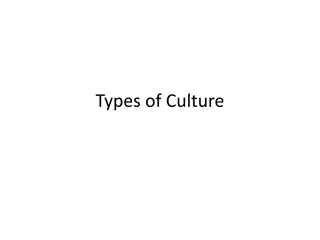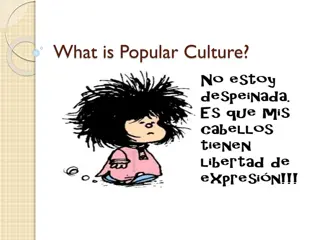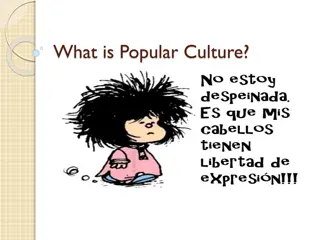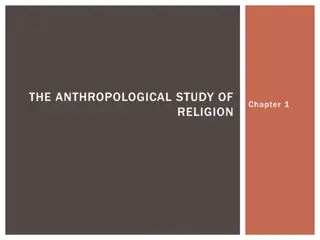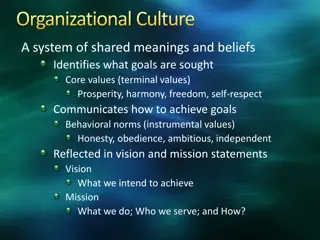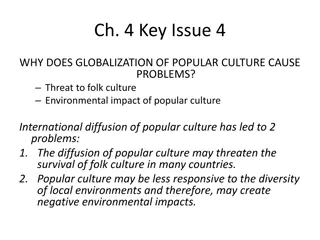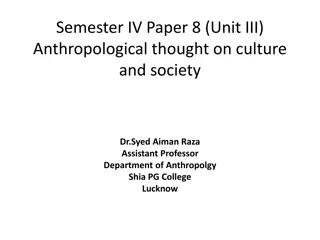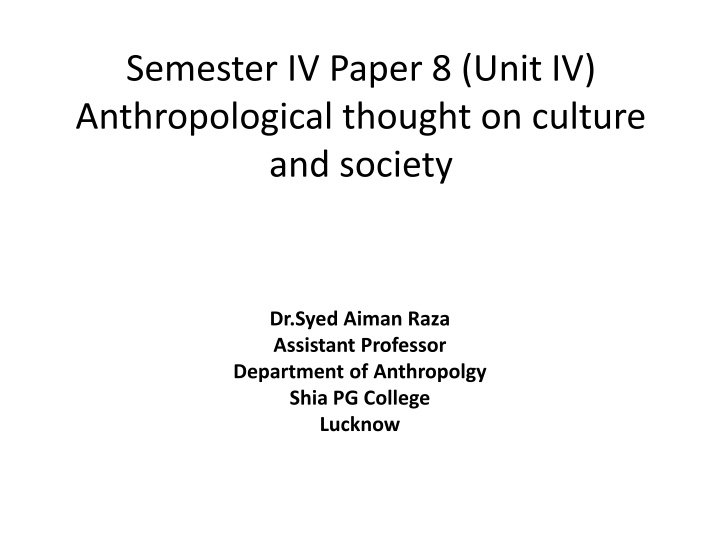
Anthropological Insights on Cultural Change and Society
Explore anthropological perspectives on cultural change and society, including concepts such as diffusion, acculturation, enculturation, and transculturation. Learn how cultures interact, adapt, and transform over time through the borrowing and transmission of cultural elements.
Download Presentation

Please find below an Image/Link to download the presentation.
The content on the website is provided AS IS for your information and personal use only. It may not be sold, licensed, or shared on other websites without obtaining consent from the author. If you encounter any issues during the download, it is possible that the publisher has removed the file from their server.
You are allowed to download the files provided on this website for personal or commercial use, subject to the condition that they are used lawfully. All files are the property of their respective owners.
The content on the website is provided AS IS for your information and personal use only. It may not be sold, licensed, or shared on other websites without obtaining consent from the author.
E N D
Presentation Transcript
Semester IV Paper 8 (Unit IV) Anthropological thought on culture and society Dr.Syed Aiman Raza Assistant Professor Department of Anthropolgy Shia PG College Lucknow
Culture Change Diffusion The source of new cultural elements in a society may also be another society. The process by which cultural elements are borrowed from another society and incorporated into the culture of the recipient group is called diffusion. Borrowing sometimes enables a group to bypass stages or mistakes in the development of a process or institution. For example, Germany was able to accelerate its program of industrialization in the 19th century because it was able to avoid some of the errors made by its English and Belgian competitors by taking advantage of technological borrowing. Acculturation On the surface, the process of change called acculturation seems to include much of what we have discussed under the label of diffusion. But more often than not, the term acculturation is used by anthropologists to describe a situation in which one of the societies in contact is much more powerful than the other. Thus, acculturation can be seen as a process of extensive cultural borrowing in the context of superordinate- subordinate relations between societies. The concept of diffusion can then be reserved for the voluntary borrowing of cultural elements, in contrast with borrowing under external pressure, which characterizes acculturation.
Enculturation Enculturation Growing up in any culture, all humans go through the process of enculturation. This process is the way in which we obtain and transmit culture. It describes how each individual comes to terms with the already set ideals that their culture has established, and how each person adapts to prohibited behaviors and beliefs, which are proscribed , versus encouraged behaviors and beliefs, which are prescribed . Parents and other authority figures in young children s lives are usually the initiators of this process, steering the children toward activities and beliefs that will be socially accepted in their culture. Through this process these authority figures definitely shape the child s view on life. Enculturation results in the interpretation of these ideals established by our culture and the establishment of our own individual behaviors and beliefs. Thus , we may define enculturation as the process by which individuals acquire the knowledge, skills, attitudes, and values that enable them to become functioning members of their societies.
Trans culturation Transculturation: a process of cultural transformation marked by the influx of new culture elements and the loss or alteration of existing ones. Transculturation is a term coined by Cuban anthropologist Fernando Ortiz in 1947. Ortiz defined the concept in opposition to the term acculturation.

